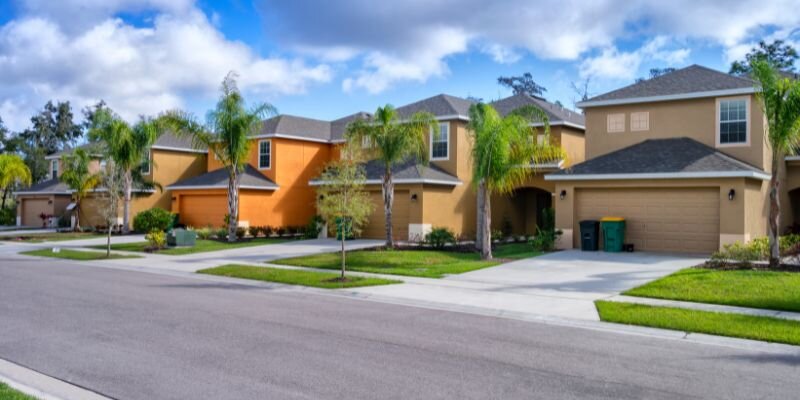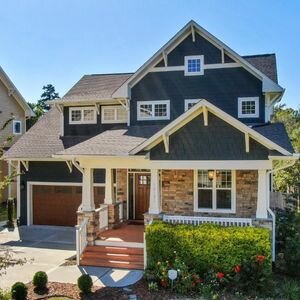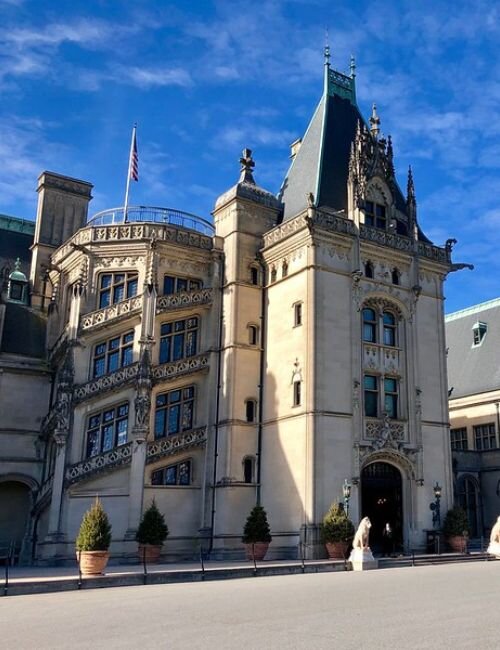
Real Estate Trends and Market Analysis for Raleigh, NC Neighborhoods
The real estate market in Raleigh, NC has changed a lot, making it a popular place for investors looking for stability and growth. Because of the city’s strong economy and active tech industry, neighborhoods like North Hills and Brier Creek are seeing property values rise as young professionals and families want to live there.
These areas offer modern amenities and proximity to major employers, making them attractive for long-term investment. Conversely, neighborhoods like Southeast Raleigh have shown potential for value appreciation due to urban revitalization efforts, but come with higher risks due to fluctuating market conditions.
Investors are also eyeing emerging areas like East Raleigh, where lower entry prices present opportunities for substantial returns as infrastructure developments progress. The overall trend in Raleigh’s estate market highlights a blend of established hotspots with steady appreciation rates and up-and-coming neighborhoods offering speculative gains based on future growth projections.
To make educated investments in Raleigh’s real estate market, one must comprehend these factors, which are becoming more important as the city grows. If you’re considering selling a property and want to understand how our process works, check out our simple step-by-step guide.
Comparing Cost of Living Across Different Neighborhoods Within Raleigh, NC
When exploring Raleigh, NC, for real estate investments, understanding the cost of living across different neighborhoods is crucial. Neighborhoods like North Hills and Cameron Village offer a higher cost of living due to their proximity to upscale dining, shopping centers, and cultural amenities, which can drive up property values and rental income potential.
Southeast Raleigh, on the other hand, is a great choice for investors on a tighter budget because of the cheaper house prices and general living costs. Attracting young professionals looking for an urban lifestyle without the premium price tag of more exclusive regions, Downtown Raleigh strikes a compromise between both extremes with moderate living prices.
Suburbs like Cary and Apex also present diverse investment prospects. They combine reasonable real estate prices with family-friendly environments and quality schools. Investors must weigh these factors carefully to align their financial goals with neighborhood characteristics within Raleigh’s real estate market. For homeowners seeking reliable support, Expert Property Management Services For Homes In Raleigh, NC can provide tailored solutions to maximize property value and tenant satisfaction.
A Guide to Affordable Housing Options in Raleigh, NC
Raleigh, NC, is a great place to invest in real estate because it has a lot of cheap housing options. Southeast Raleigh and East Raleigh are two neighborhoods that are great for investors who want to get the most out of their money. They are also less expensive than other parts of the city.
These neighborhoods are experiencing growth and revitalization, making them ideal for first-time homebuyers or those seeking rental properties with long-term appreciation potential. With the increasing demand for affordable housing, areas like South Park and College Park are gaining attention due to their proximity to downtown amenities and public transportation, providing convenience without a hefty price tag.
Investors should also think about whether there are government programs in these areas that help build affordable housing. These programs can make Raleigh’s real estate market even more appealing to investors.
How to Choose the Right Neighborhood for Your Lifestyle in Raleigh, NC

When looking for real estate investments in Raleigh, NC, it’s important to pick a community that fits your lifestyle and needs. The downsides are that it’s hard to go to employment, school, and things like parks and retail malls.
If vibrant city life is important to you, focus on neighborhoods closer to downtown Raleigh, where the cultural scene thrives with restaurants, art galleries, and nightlife. For families seeking a quieter environment with quality education options, look into suburban areas like North Hills or Cary, which offer spacious homes and reputable schools.
ReseResearch local and infrastructure plans and projects to assess neighborhoods’ Safety. Safety is paramount, so reviewing crime statistics can provide insight into the community.
Additionally, assess the neighborhood’s ability score if accessibility on foot is essential to your daily routine. By evaluating these factors in Raleigh’s neighborhoods, you can find a location that perfectly suits your lifestyle while also making a sound real estate investment.
Comparing Urban Vs. Suburban Living in Raleigh, NC
Investing in real estate in Raleigh, NC requires an understanding of the distinctions between urban and suburban life. Lively lifestyles abound in Raleigh’s urban areas like Downtown and Glenwood South, thanks to the abundance of cultural amenities, restaurants, and entertainment venues in the area.
These areas are popular among young professionals seeking a dynamic environment with walkability and access to public transportation. However, real estate prices can be higher due to demand and limited space for new developments.
Cary and Apex are examples of suburban suburbs that offer a more peaceful environment, wider yards, and homes with great schools and community parks. These neighborhoods are popular with families. Investors seeking affordable properties for long-term rentals or family residences often look to the suburban real estate market. Similarly, cash home buyers in Garner provide homeowners with flexible options for selling in a growing suburban market.
Each type of neighborhood presents unique investment opportunities depending on the target demographic and desired return on investment in Gh’s real estate market.
Safety and Crime Rates: What You Need to Know About Living in Raleigh, NC
Researching the crime rates and safety ratings of potential Raleigh, NC real estate investments is essential. There is a wide range of communities in Raleigh, each with its own unique safety profile, thanks to the city’s thriving culture and commerce.
Areas like North Hills and Brier Creek are often highlighted for their lower crime rates and family-friendly environments, making them attractive to investors seeking stable returns. Conversely, some parts of Southeast Raleigh might present higher crime statistics, which can impact property values negatively but might also offer opportunities for investors willing to take on more risk for potential high-reward projects.
The city’s department works actively to maintain public Safety across all areas, yet variations in crime rates persist due to socioeconomic conditions and community engagement levels. By analyzing local crime reports and consulting with residents or real estate professionals familiar with Raleigh’s neighborhoods, investors can make informed decisions that align with their risk tolerance and investment goals.
Understanding Property Taxes Across Different Regions of Raleigh, NC

Understanding property taxes is crucial when exploring real estate investments in Raleigh, NC, as they can significantly impact the overall return on investment. In Raleigh, property tax rates vary across neighborhoods due to local government budgets, school district funding needs, and infrastructure development.
For instance, areas experiencing rapid growth or revitalization might have higher property taxes to support expanding public services and amenities. On the other hand, established neighborhoods with slower growth may offer more stable tax rates.
Investors should pay close attention to these variations when assessing potential properties in Downtown Raleigh, North Hills, or Brier Creek. Additionally, researching upcoming tax assessment changes or local government policies can provide insights into future costs.
By understanding these subtleties, investors can make smart choices about which neighborhoods will help them reach their financial goals and get the best returns on their Raleigh real estate purchases.
Navigating Public Transportation Across Different Neighborhoods in Raleigh, NC
Raleigh, NC, offers a diverse array of neighborhoods, each with unique characteristics that influence their appeal for real estate investments, particularly when considering public transportation accessibility. The city’s extensive public transit network includes the GoRaleigh bus system, which serves major areas such as Downtown Raleigh, North Hills, and Cameron Village.
These neighborhoods are more appealing to tenants and buyers looking for convenience since they have numerous bus routes and easy access to facilities. Conversely, regions such as Brier Creek and Leesville may provide difficulties due to restricted public transit alternatives, thus affecting the appeal for individuals dependent on commute services.
Proximity to key transit hubs can significantly affect property values and rental demand; therefore, understanding the nuances of each neighborhood’s sectivity is crucial for investors looking to capitalize on Raleigh’s growing market. As the city continues to develop its infrastructure with upcoming projects like the Wake County Transit Plan, savvy investors will need to stay informed about how improvements in public transportation might shift dynamics across various communities in Raleigh.
Evaluating School Districts and Educational Opportunities in Raleigh, NC
Real estate investors in Raleigh, NC should pay close attention to the area’s school districts and educational options when they look at schools there. The quality of the schools is often directly linked to the worth of the homes in an area, making it an important factor in choosing the best places to invest.
Raleigh is home to several highly rated public and private schools and prestigious universities like North Carolina State University. Neighborhoods such as Cary and Wake Forest are renowned for their exceptional school districts, which contribute to higher demand and appreciation potential in the housing market.
Conversely, areas with lower-performing schools may offer more affordable entry points but could pose risks regarding slower property value growth. Understanding the impact of school district performance on real estate trends is essential for investors looking to maximize their returns in Raleigh’s market.
Exploring the Top Family-friendly Neighborhoods in Raleigh, NC
Raleigh, NC, offers an array of family-friendly neighborhoods prime for real estate investments due to their strong community features and excellent amenities. Areas like North Hills and Brier Creek stand out with their top-rated schools, expansive parks, and convenient access to shopping centers, making them attractive to families looking for a safe and engaging environment.
These neighborhoods also boast low crime rates and vibrant community events that foster a sense of belonging. The real estate market in these areas is robust, with properties maintaining value due to high demand driven by their quality of life.
Additionally, Apex and Cary are appealing options within the Raleigh vicinity; they provide spacious homes and well-maintained public facilities that cater to family needs. Investing in these neighborhoods promises potential financial returns and ensures a harmonious living experience for families seeking stability and growth opportunities in the heart of North Carolina’s rural region. To learn more about who we are and how the Cardinal Home Buyers team can help, visit our company page.
The Best Places for Young Professionals to Live in Raleigh, NC
Raleigh, NC, offers a vibrant real estate market for young professionals seeking the perfect blend of career opportunities and lifestyle amenities. One of the best neighborhoods for young professionals is Glenwood South, known for its bustling nightlife, trendy bars, and diverse dining options.
This area attracts young buyers with its walkability and proximity to downtown Raleigh’s business district. Another prime spot is North Hills, often dubbed “Midtown” in Raleigh. It provides a mix of upscale apartments and townhomes surrounded by shopping centers, restaurants, and entertainment venues.
The neighborhood’s work appeals to those seeking convenience and modern living spaces. Additionally, the Warehouse District has become increasingly popular among young professionals due to its urban vibe, historic architecture, and array of art galleries and tech startups that foster a creative community atmosphere.
Cameron Village also stands out with its charming residential streets lined with mid-century homes and various shops and cafes that offer comfort and style in everyday life. These neighborhoods in Raleigh promise strong real estate investment potential and cater to the dynamic lifestyles of young professionals moving to the area.
What Is the Safest Area to Live in Raleigh, NC?

When exploring the safest area to live in Raleigh, NC, one neighborhood consistently stands out: North Hills. Known for its low crime rates and family-friendly atmosphere, North Hills offers a secure environment for residents seeking peace of mind.
This vibrant community combines suburban charm with urban convenience, boasting excellent schools, spacious parks, and a variety of shopping and dining options. The real estate market in North Hills is robust, making it an attractive choice for investors looking to capitalize on property value appreciation while ensuring Safety and quality of life for potential tenants or homeowners.
With its strong sense of community and commitment to Safety, North Hills is undoubtedly one of the top neighborhoods to consider when evaluating real estate investments in Raleigh.
What Is the Best Area in Raleigh, NC, to Live In?
One neighborhood consistently stands out when exploring Raleigh, NC, for the best place to live: North Hills. Known as the Midtown of Raleigh, North Hills offers a vibrant mix of residential options, making it ideal for real estate investments.
This area boasts a dynamic blend of luxury apartments, modern townhomes, and family-friendly single-family homes. Its thriving retail and dining scene is anchored by the North Hills Mall, providing residents with convenient shopping and entertainment options.
The neighborhood’s proximity to downtown Raleigh and major highways like I-440 makes it highly accessible. Additionally, North Hills is home to excellent schools and beautiful parks such as Shelley Lake Park, enhancing its appeal for families.
With its intense community atmosphere and ongoing development projects that promise future growth potential, North Hills remains a top choice for those looking to invest in the Raleigh real estate market. For homeowners needing to sell your Raleigh house faster, our team offers quick and reliable solutions tailored to your neighborhood.
What Are the Downsides of Living in Raleigh, NC?
While Raleigh, NC, offers numerous opportunities for real estate investments, potential investors and residents should be aware of certain downsides to living in the area. One notable concern is the rising cost of living, driven by an increasing demand for housing, which can make it challenging for newcomers to find affordable properties.
Additionally, Raleigh’s growth has led to significant traffic congestion, particularly during peak hours, affecting daily commutes and overall quality of life. The city also experiences hot and humid summers, which might not be ideal for everyone.
Furthermore, while Raleigh boasts a vibrant cultural scene and a strong job market, some neighborhoods still struggle with limited public transportation and access to amenities, considering real estate opportunities in Raleigh’s neighborhoods.
Helpful North Carolina Blog Articles
- Selling Your Home And Relocating In North Carolina
- Selling A Home With Tenants In North Carolina
- Taxes When Selling Your House In North Carolina
- Selling Your Home Amid Divorce in North Carolina
- Selling A Fixer-upper Home In North Carolina’s Real Estate Market
- Selling A House While it is in Foreclosure in North Carolina
- Selling a Probate House in North Carolina
- Selling Your Home Without A Realtor In North Carolina
- Sell Your North Carolina Home With An Existing Mortgage
- Tenant Damage to Property In North Carolina
- Sell Your Home Despite Mold Issues in North Carolina
- Best And Worst Neighborhoods For Real Estate Investments In NC
- Property Tax Rates For Homeowners And Real Estate Investors In NC
- Understanding North Carolina Quitclaim Deed Rules
- Expert Property Management Services For Homes In North Carolina

| NORTH RAIGH | CITY OF RALEIGH | OFFENSES | CRIMINAL ACTIVITY | THETRIANGLE | RESEARCH TRIANGLE |
| TRIANGLE AREA | THE TRIANGLE | TRIANGLE | RALEIGH – DURHAM | CONTAINMENT AREA FOR RELOCATED YANKEES | CARY NORTH CAROLINA |
| REAL ESTATE FIRMS | NEIGHBORHOODSCOUT’S | NEIGHBORHOODSCOUT | NEIGHBORHOODSCOUT’S | AMERICA | U.S. |
| DATA | VIOLENT CRIME | PROPERTY CRIMES | THEFT | VEHICLE | MOTOR VEHICLE THEFT |
| MOTOR VEHICLE | LAW ENFORCEMENT AGENCIES | LAW ENFORCEMENT | LAW | BURGLARY | BURGLARS |
| ASSAULT WITH A DEADLY WEAPON | AGGRAVATED ASSAULT |
